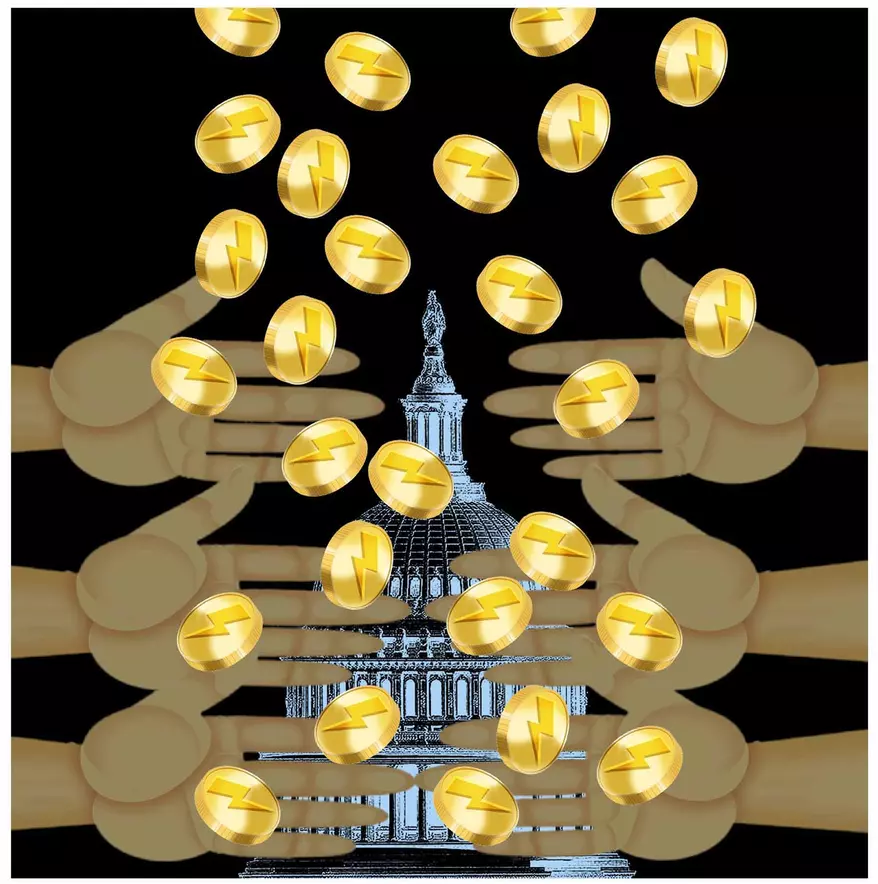Imagine you have an entirely legal business in your home state, but certain politicians and powerful government bureaucrats do not like your business for personal or political reasons and are determined to shut you down. One of the easiest ways for government tyrants to squash a business or individual is to deny them access to the banking system by threatening the banks with regulatory harassment.

It is virtually impossible to operate a business or live a modern life without access to the banking system. Banks are highly sensitive to the wishes of the various bank regulatory and law enforcement agencies. Under the Obama administration, there was a program called Operation Choke Point, which was designed to make it hard for legal gun manufacturers and dealers to operate by denying them banking services. The government would discreetly inform the bank that is serving a gun seller and repair shop that if they don’t drop the account, they are more likely to have “enhanced inspections” and audits. Other politically unpopular but totally legal businesses that have encountered “banking problems” include payday lenders and those in the fossil fuel industry and adult entertainment.
There now appears to be a coordinated effort by the Biden administration to go after banks and financial services businesses that are involved in the cryptocurrency business, which is broadly defined. This attack is coming from the traditional bank regulatory agencies, including the Federal Reserve, the Securities and Exchange Commission and others overstepping their legislative mandates. Financial writer and venture capitalist Nic Carter, in recent articles on the Pirate Wires website, and financial economist Tom Hogan (former chief economist of the Senate Banking Committee), in an excellent podcast produced by the American Institute for Economic Research, detail the recent government attacks on the crypto industry.
Recent estimates of the total value of bitcoin exceed $1 trillion, and the total value of all cryptocurrencies is estimated to exceed $3 trillion dollars. Why are people putting all that money into these non-earning assets? Some use cryptocurrencies as a means of speculation, like casino chips. But many appear to be buying BitCoin and the other cryptocurrencies as a hedge against what they see coming — a collapse or inflationary spiral in government fiat currencies. One does not have to be a rocket scientist to look at the balance sheets of the major governments to see there is a problem. For instance, the U.S. government has explicit financial liabilities of more than 100% of gross domestic product and tens of trillions in other implicit liabilities — Social Security, Medicare, Medicaid, other government pension and medical liabilities, government guarantees to the banking and other industries, etc. History shows that when government debt burdens and liabilities become unsustainable, the easiest choice is to debase the currency (inflation).
For centuries, people have acquired real assets — e.g., real estate, art, jewelry, gold and silver, antique automobiles, and even guns and ammo — as hedges against currency debasement. The advent of alternative private electronic money surrogates like bitcoin, which provided a high degree of both privacy and liquidity, explains their popularity. There are now hundreds, if not thousands, of variations of cryptocurrencies — very broadly defined. Bitcoin is “backed” by an algorithm that limits the total number that can be issued. Others — so-called stablecoins — are in part or fully backed by such things as government securities, gold, silver, copper or aluminum. Many of these have been traded on U.S.-based crypto exchanges.
Even though governments having a monopoly on money issuance is of relatively recent vintage, most people take it as almost a natural right of government. The Bank of England, a private bank until 1946, was given the sole right to issue banknotes in England (but not Scotland) in 1694, and the Federal Reserve was given similar rights in 1913. From the earliest times, governments defined the value of the money that could be used for the payment of taxes and receipts from the government — but did not require a government monopoly on issuance.
As long as any private crypto or commodity-backed currency can be easily exchanged for U.S. dollars — again, for the payment of taxes — the government should have no further interest in what the private sector determines is the best store of value, unit of account, and medium of exchange. Unfortunately, many of those in government hate the idea of giving power to the people. One of the most notorious members of the deep state is SEC Chairman Gary Gensler, who endlessly tries to extend the jurisdiction of his agency without legislative mandate. He has now declared all cryptocurrencies, and even fully commodity-backed tokens (which are actually warehouse receipts), to be “securities.” Income-producing assets like stocks and bonds are securities. Claims on goods and services, like the euro, the yen, other government or privately issued currencies, frequent flyer miles and hatcheck stubs are not securities.
Mr. Gensler and other regulatory tyrants are most likely to lose in court. But in the meantime, the broadly defined crypto and private commodity industry will be brought to a near halt in the U.S. and driven overseas, depriving U.S. citizens of all the money innovation, which is both driving down transaction costs and providing better wealth protection.
• Richard W. Rahn is chairman of the Institute for Global Economic Growth and MCon LLC.
https://www.washingtontimes.com/news/2023/jul/10/money-and-regulatory-tyrants-shutting-down-cryptoc/
© Copyright 2023 The Washington Times, LLC.